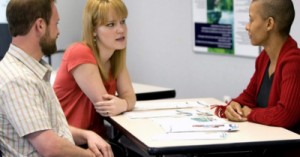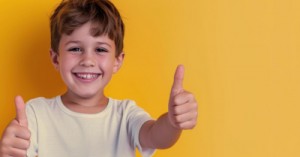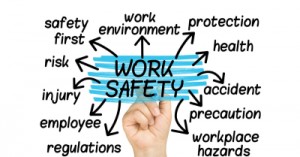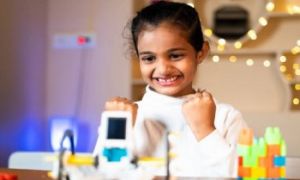A: As the end of the preschool year approaches, preschool educators begin preparing for graduation ceremonies—complete with miniature caps, choreographed performances, and proud photo ops. While these events can be joyful and affirming, they also invite deeper reflection. Is a formal graduation truly necessary in early childhood education? Or are there more developmentally appropriate, emotionally intelligent ways to honour children’s growth? This question opens space for reimagining what transition rituals could look like—and who they’re really for.
Pros of Preschool Graduation
- Celebrates growth and transition: Marks a meaningful shift in a child’s journey, especially for families who value ritual and recognition.
- Builds community: Brings educators, children, and families together, strengthening relationships and shared pride.
- Boosts confidence: For some children, standing on stage or receiving a certificate can feel empowering and affirming.
- Creates joyful memories: Photos, keepsakes, and shared stories can become treasured family moments.
- Educator recognition: Offers a chance to honor the work of early childhood professionals and the learning environment they’ve nurtured.
Cons of Preschool Graduation
- Developmental mismatch: Young children may not fully understand the concept of “graduation,” making the ritual more symbolic than meaningful to them.
- Performance pressure: Rehearsals, costumes, and scripted roles can cause stress, especially for neurodivergent or trauma-affected children.
- Exclusion risks: Not all families can attend or afford extras like outfits or photos, potentially creating inequity or shame.
- Time and resource drain: Preparing for ceremonies can divert attention from relational work, documentation, or wellbeing support.
- Adult-centric design: Often reflects school-like formalities rather than play-based, child-led celebration of learning.
Reflective Questions
Here’s a set of reflective questions to critically explore the purpose, impact, and design of preschool graduation.
Purpose and Intent
- What is the core purpose of our preschool graduation? Who benefits most from it—children, families, educators, or the institution?
- Does the ceremony reflect our pedagogical values, or is it shaped by external expectations or tradition?
Child Voice and Emotional Safety
- How are children involved in shaping the celebration? Do they understand and feel ownership of the process?
- Are all children emotionally safe and supported during the event, especially those with trauma histories or sensory sensitivities?
- What alternatives exist for children who may not thrive in large, performative settings?
Cultural and Community Relevance
- Does the graduation ritual honor the cultural identities and transitions of our children and families?
- Are we unintentionally privileging Western or school-like symbols (e.g., caps and gowns) over more inclusive or meaningful rites of passage?
Practical and Ethical Considerations
- How much time and energy does the graduation preparation require? Is it proportionate to its developmental value?
- Are there equity risks—such as cost, attendance barriers, or exclusion of families with limited access?
- Could this celebration unintentionally reinforce compliance or performance over authentic learning?
Reimagining Possibilities
- What would a child-led, emotionally intelligent celebration look like?
- How might we document and celebrate growth in ways that are restorative, inclusive, and joyful?
- Can we co-design rituals that center belonging, relationships, and resilience rather than achievement?
Alternative Ideas To A Preschool Graduation
1. Child-Led Learning Showcase
- Children curate their own portfolios, artwork, or stories to share with families.
- Set up interactive stations where children “host” their learning journey.
- Encourages agency, pride, and storytelling without performance pressure.
2. Seasonal or Cultural Transition Ritual
- Replace “graduation” with a ritual that reflects local culture or seasonal change (e.g., planting ceremony, lantern walk, water blessing).
- Use symbols like flowers, feathers, or stones to mark growth and belonging.
- Honors diverse identities and community rhythms.
3. Memory Book or Story Circle
- Co-create a class memory book with drawings, quotes, and photos.
- Host a storytelling circle where each child shares a favorite moment or learning.
- Builds emotional literacy and connection.
4. Family Picnic or Community Feast
- Celebrate with a relaxed gathering—no stage, no scripts.
- Invite families to bring dishes, share songs, or play games.
- Focuses on relationships and joy rather than performance.
5. “I Am Growing” Ceremony
- Each child receives a personalized affirmation or symbolic token (e.g., bead, leaf, ribbon).
- Educators share heartfelt reflections on each child’s journey.
- Gentle, emotionally intelligent, and inclusive.
6. Art Exhibition or Gallery Walk
- Transform the learning space into an art gallery showcasing children’s creations.
- Include audio recordings of children explaining their work.
- Honors creativity and voice in a calm, sensory-friendly format.
7. Nature-Based Celebration
- Host a bushwalk, garden planting, or outdoor exploration day.
- Use nature metaphors (e.g., “You’re growing like a tree”) to mark transition.
- Grounded, calming, and deeply symbolic.
Ultimately, the decision to hold a preschool graduation is not about right or wrong, it’s about relevance, intention, and community. Every early learning service is unique, shaped by its children, families, educators, and cultural context. What feels meaningful in one setting may not resonate in another.
Whether you choose a formal ceremony, a quiet ritual, or a child-led celebration, the most important thing is that it reflects the values, voices, and needs of your community. When we lead with emotional intelligence, inclusivity, and authentic connection, every transition becomes an opportunity to uplift not just commemorate.
Further Reading
Preschool Graduation In Early Childhood Services
Graduation Certificates
Preschool Graduation Songs







 As an Educator in Australia, your pay rate falls under the Children’s Services Award 2010. This award states the minimum amount that an employer can
As an Educator in Australia, your pay rate falls under the Children’s Services Award 2010. This award states the minimum amount that an employer can When working as a qualified Early Childhood Teacher (with a university degree) within a service, your rate of pay will come from the Educational Services
When working as a qualified Early Childhood Teacher (with a university degree) within a service, your rate of pay will come from the Educational Services When working as a Diploma Qualified Educator your pay rate is from the Children's Services Award 2010. This Award states your minimum rate of pay
When working as a Diploma Qualified Educator your pay rate is from the Children's Services Award 2010. This Award states your minimum rate of pay When working as a Cert 3 Qualified Educator, your pay rate is from the Children's Services Award 2010. This Award states your minimum rate of
When working as a Cert 3 Qualified Educator, your pay rate is from the Children's Services Award 2010. This Award states your minimum rate of Educational Leaders play a crucial role in their early childhood service by ensuring that the educational program aligns with best practices and supports the holistic
Educational Leaders play a crucial role in their early childhood service by ensuring that the educational program aligns with best practices and supports the holistic In early childhood education and care, ratios are more than a technicality—they are a frontline safeguard. Every child deserves responsive supervision, emotional connection, and developmental
In early childhood education and care, ratios are more than a technicality—they are a frontline safeguard. Every child deserves responsive supervision, emotional connection, and developmental With the new national child safety reforms kicking in on 1 September 2025, early childhood services like yours have a real opportunity to lead the
With the new national child safety reforms kicking in on 1 September 2025, early childhood services like yours have a real opportunity to lead the Here’s a comprehensive Mobile Phone and Smart Watch Policy tailored for early childhood education and care (ECEC) services in Australia, aligned with the latest 2025
Here’s a comprehensive Mobile Phone and Smart Watch Policy tailored for early childhood education and care (ECEC) services in Australia, aligned with the latest 2025 The Sea of Fish Challenge is a national initiative that invites children, educators, families, and communities to create and display fish artworks as a symbol
The Sea of Fish Challenge is a national initiative that invites children, educators, families, and communities to create and display fish artworks as a symbol Across the early childhood education and care sector, educators are sounding the alarm: current staffing ratios are insufficient to deliver safe, meaningful, and developmentally appropriate
Across the early childhood education and care sector, educators are sounding the alarm: current staffing ratios are insufficient to deliver safe, meaningful, and developmentally appropriate


